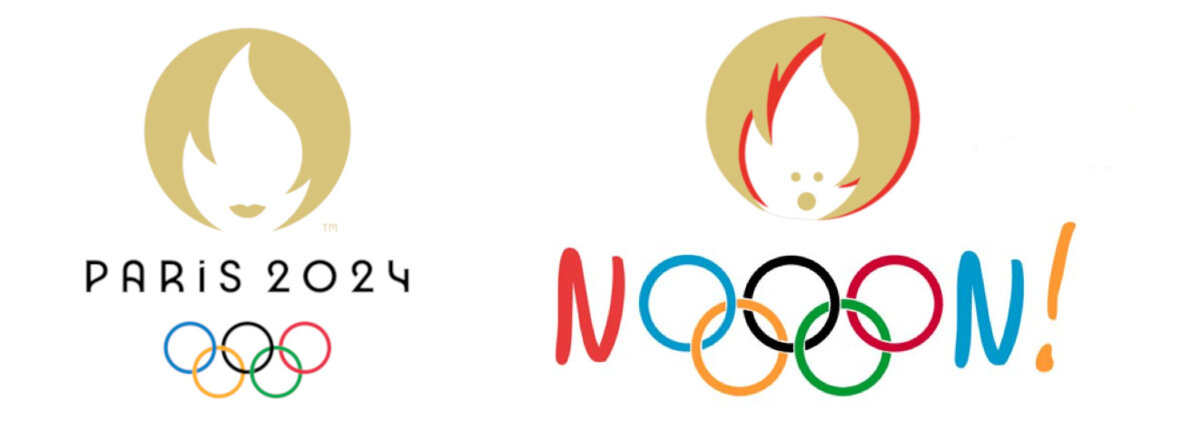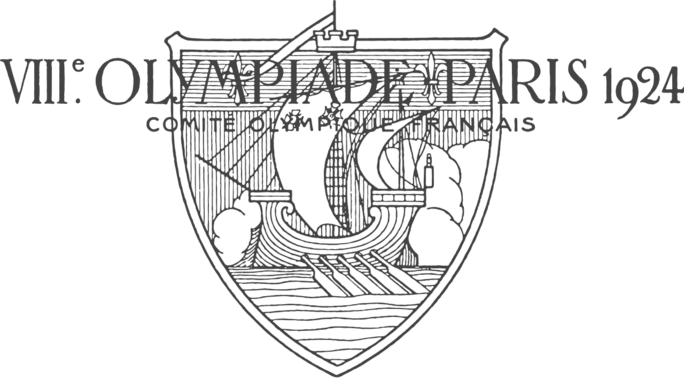
Agrandissement : Illustration 1

The Olympics have been held in Paris twice before. This makes it only the second city, after London, to host the games for a third time. This is a source of pride for the French nation and considerable effort has been made to make the games a rousing success. However, it is exactly one hundred years since the French capital – home to the founder of the modern Olympic movement, Pierre de Coubertin – has organised the world’s most prestigious sporting event.

Agrandissement : Illustration 2

A good deal of water has passed under the bridges of the Seine since then. The games were instrumentalised by the Nazi propaganda machine in 1936 – which is how many of the enduring Olympic symbols were established in the public imagination, including Coubertin’s five interlocking rings and the Olympic flame. They were used as a political football in the Cold War. They have suffered terrorist massacres, boycotts and doping scandals. They have witnessed protests about civil and human rights. They have opened their doors to sportswomen and disabled athletes, with the integration of the Paralympics. Above all, they have expanded and sprawled, in both economic and sporting terms, requiring multi-billion dollar investments, lavish commercial sponsorship deals and colossal construction projects.
The social and environmental impacts of these increasingly extravagant schemes – which often appear to have appropriated the Olympic motto “higher, faster, stronger” in their drive for international one-upmanship – are subject to greater scrutiny than ever before. This is an era in which the expansionist ideologies of previous centuries, which provided the backdrop for Coubertin’s innovation, are often blamed for exploiting and degrading the environment, ecosystems and vulnerable human communities. There has consequently been considerable resistance to the organisation of the games in the city and the country in which the idea for their revival was first formulated. This has tempered the excitement that hosting the Olympics has generated in France.
In terms of the sports themselves, the hope is that Paris 2024 will provide a fillip to French sporting federations, encouraging participation and investment in the country’s less popular and less lucrative sports, in particular where women and disabled athletes are concerned. Meanwhile, this edition of the summer games has seen the recent trend for national expansion beyond the host city taken to the extreme. There are events to be held the length and breadth of metropolitan France, from Lille in the North to Marseille in the South, from Bordeaux in the West to Lyon in the East. One competition is even to be hosted over fifteen thousand kilometres from central Paris, in Tahiti, part of the oversees territory of French Polynesia. This makes the games an event with a truly national profile, in which various local issues, unrelated to the capital, come into play.
The blog
This blog, the twelfth journalism translation project by students of the MéLexTra JET master’s degree in English-French translation at the University of Lille, is aimed at readers of Mediapart English who wish to learn a little more about French media coverage of these issues. It seeks to tease out some of the cultural tensions and acommodations between conflicting concepts in the French media’s reporting of issues relating to Olympic and Paralympic sporting events, the social and environmental impacts of the games and local stories from Olympic venues beyond the Greater Paris region.
Who are we?
Seven students completing their second year ‘JET’ master’s degrees (Traduction Juridique et Technique) specialising in legal and technical translation between French and English. This project is part of a module (Traduction journalistique) in which French journalism is translated into English. It is overseen and edited by the module’s teacher, applying a collaborative student-centred learning approach in the ‘newsroom class’.
Translators:
- Pierre HEBERT
- Alexis HOURSON
- Charlie JUET
- Cécile LAHMENE
- William LEFEVER
- Paul VASSELON
- Zoé VILERS
Editor:
- Sam TRAINOR
What sorts of articles are translated?
The project has two main goals. The first is to allow non-French readers to delve a little deeper into debates surrounding the preparations for the Olympics and Paralympics in France. The second is to provide readers with an idea of how local and global issues related to the broader topic are reported and discussed in the French press, and what this might reveal about the country’s news media.
Articles are taken from a wide variety of local, national and international French journalistic sources, appearing in print, broadcast and online. The project seeks, in part, to give non-French readers an insight into the various ideological leanings of the different sections of the French media and how these correlate (or not) with their positions regarding these issues. Articles will therefore be selected from sources with a broad spectrum of political leanings. An introductory ('standfirst') paragraph always provides some brief information on the source context.
Where can the original articles be found?
In every case, copyright and publishing details are provided in the translations: the original authors, photographers etc. are always indicated. Links are also provided to online versions of the original articles in their original publishing context, wherever possible.
What is our translation policy?
Translations are initially provided by pairs of students, one of which is the initial or lead translator. Following a 'strategic layering' approach, the other translator is responsible for sourcing and translating any quotations or other 'source level material' in the article, and the lead translator then adapts this material to his/her translation of the journalist's copy. These are sub-edited by the project editor, who also provides 'editorial level material' (like the headline, standfirst, notes etc.), and the article is then posted online. The article then potentially undergoes a final modification by the editors of Mediapart English before being moved to the club section of the paper’s front page. Stylistically, the translations are relatively close to the originals and there is a little less structural or syntactic reorganisation involved than would be the case in more general journalistic practice. One of the key goals of the project is to give non-French readers an idea of how the issues are presented in the French media. Some aspects of French journalistic style are therefore preserved in the translations. For a related reason, a number of terms are left in French, with links to a glossary article being preferred to explanatory translations. These include, for example, terms for local geographical areas, like département, and titles of political offices, such as député and préfet.
What kind of English is used in MéLexTra blogs?
Mediapart being a European publication, British English spellings are used throughout, as are predominantly British English grammar and vocabulary. However, the French constitution and political context being closer in some circumstances to the language culture of the United States than the United Kingdom, there are a handful of globally recognisable American English idioms that have naturally been incorporated in previous projects. Presidential candidates, for example, are said to be ‘running for office’ rather than ‘standing for election’. This contextual hybridisation of English varieties is likely to continue with all future projects.
House style meets the "Translation Bible"
The French term "Bible de traduction" is a concept borrowed from professional audiovisual translation practice, where the subtitlers or dubbing authors of a television series establish and share a set of fixed translation solutions and equivalences for recurring terms which, for reasons of continuity, all collaborators are asked to follow. One of the main features of this annual translation project is the continual expansion and renewal of what might be considered an expanded house style guide, specifically adapted to the translation of politically inflected French news journalism in English. In the "editorial classroom", students not only pitch, discuss and choose between articles for translation, mirroring the activity of a traditional newsroom, but they also discuss specific translation choices and the possibility of adding a new, potentially recurring translation solution as a conventional equivalence in the project's style guide.



